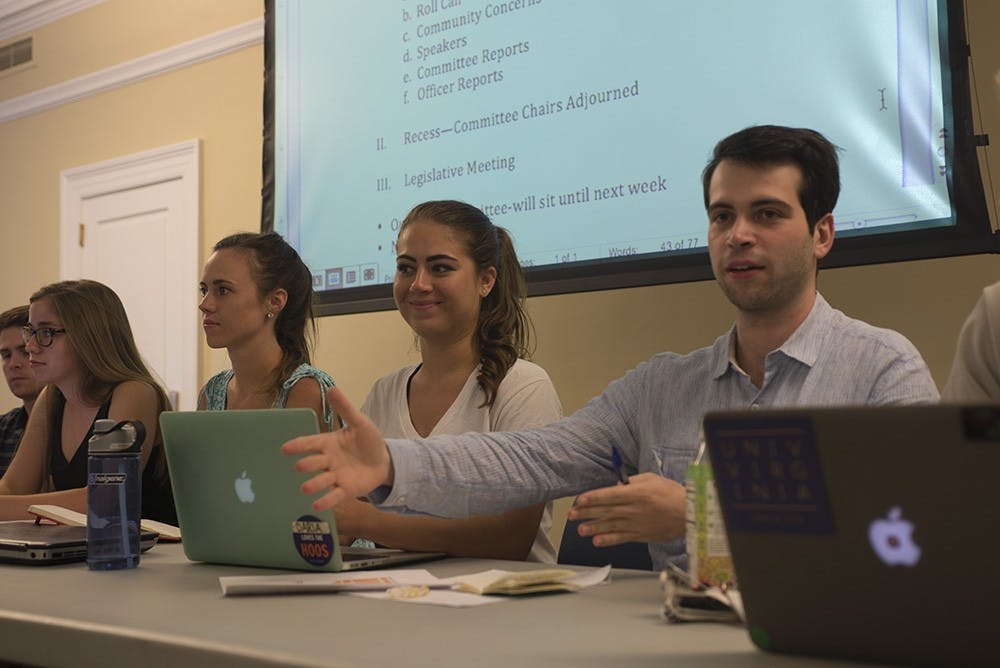Student Council discussed upcoming changes to the Safe Ride system, which include a transition in oversight, additional costs and a new app to request rides, at its general body meeting Tuesday.
Currently run by the University Police Department, the SafeRide program will soon be transferred to the University Transportation Services purview by June 1, Director of Parking and Transportation Becca White said.
“This will give us a couple months under our belt before the entire student body is using it,” White said.
The program has not undergone any substantial changes in the past decade, White said.
“The University Police does not have a distinct staff, they do not have a distinct dispatcher [and] out of the four vans that run, only three of them are specifically for Safe Ride,” White said.
Though UTS will commit more resources to the program, this will come with an additional cost. The average Safe Ride trip costs between $6-$10, as opposed to the 75 cents it costs to ride a University bus.
“It is a very expensive service to run,” White said. “The entire student body, through their comprehensive fee, subsidizes that.”
The new system will also involve an app with an interface similar to Uber, allowing students to request rides and track the van.
White also said UTS has found approximately 20 percent of Safe Ride trips are made by student athletes who leave for practice at around 5 a.m.
Third-year College student Abraham Axler, Student Council president, said this cost can be alleviated if University Athletics provides transportation for athletes.
“It strikes me that 20 percent of the rides are being used by a very specific population that is already fee-supported,” Axler said. “That’s possibly a redundant system.”
The second half of the meeting focused on a presentation about accommodations for transgender students given by second-year student Brett Curtis, a College representative to Student Council.
Currently, Housing and Residence Life works to accommodate the needs of individual transgender students, though there is no specific policy relating to this issue.
“The policies are reactive, not proactive,” Curtis said.
Curtis said 680 students were surveyed about accommodations for transgender students over the course of two weeks. Though only 2 percent of the survey respondents identified as transgender, 8.6 percent said transgender accommodations and policies were very important to their decision to attend the University.
“It’s more about an open-ended and inclusive environment and less about being specifically for transgender students,” Curtis said.
Of the respondents, 69.2 percent of students said gender-neutral housing should be available in some capacity, with 8.5 percent saying all housing should be gender-neutral. Though there was no clear consensus regarding how gender-neutral housing should be implemented at the University, the study found 46 percent of students disagreed with the statement “I think U.Va. does enough to make transgender, gender nonconforming and LGBTQ individuals feel safe and comfortable.” An additional 31.2 percent of students were neutral regarding this statement.
In response to the survey information, Curtis drafted two resolutions for Student Council’s consideration. The first advocates for gender-neutral housing in some capacity, while the second calls for a University health insurance plan which will cover benefits related to transgender needs.







